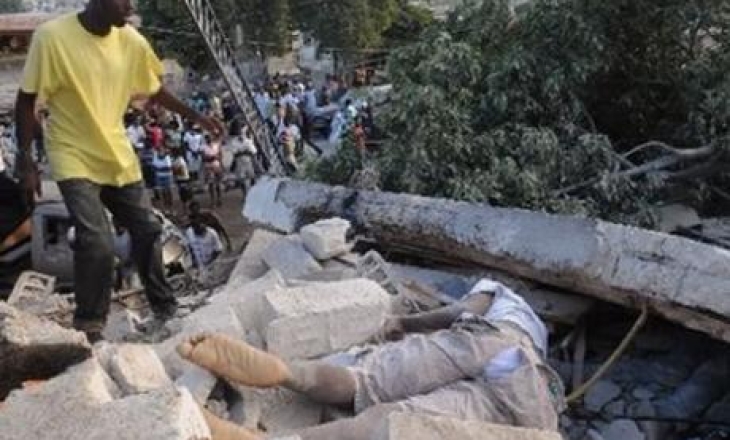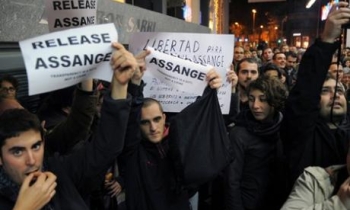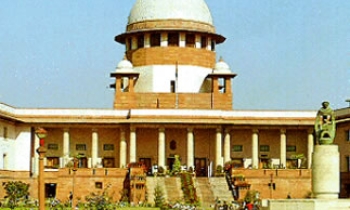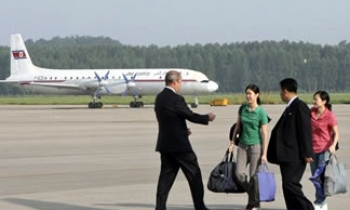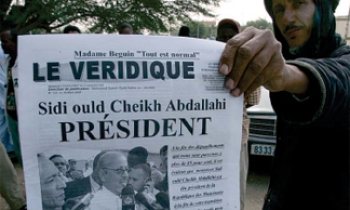The year 2010 ushered in a number of major setbacks for the media across the globe, says the International Press Institute (IPI), from the numerous journalists murdered in Pakistan and Honduras to the oppressive media laws passed in South Africa. But what did IPI consider to be the number one press freedom event of 2010?
The January 12 earthquake in Haiti claimed nearly 300,000 lives, including those of 30 journalists, and virtually destroyed the country's media industry. A year later, many journalists continue to be out of work and others are striving to produce news about the earthquake's impact as well as the effects of the resulting cholera outbreak. For those reasons the earthquake tops IPI's press freedom events of the year.
Just across the way was IPI's number two story: Cuba's release of more than 50 jailed dissidents, including 29 journalists, many of them jailed in the "Black Spring" of 2003. Among those journalists released was Omar Rodriguez Saludes for whom IPI ran a "Justice Denied" campaign over the past several years. Saludes, like the other released prisoners, now lives in Spain. Number three on the list was the nine journalists murdered in Honduras, and the fact that in not a single case was anyone convicted of the slayings.
- Following the 12 January earthquake in Haiti that claimed nearly 300,000 lives, turmoil erupted. Some 30 journalists died in the devastating earthquake which virtually destroyed the country’s media industry. Many journalists continue to be out of work and others are striving to produce news about the earthquake’s impact as well as the impact of a deadly cholera outbreak which occurred later in the year.
- While the world applauded Cuba’s release of more than 50 jailed dissidents, including 29 journalists, press freedom watchdogs continued to call on Cuban President Raul Castro to release the remainder of those rounded up in 2003 and sentenced to jail terms of between six and 28 years. Among those journalists released was Omar Rodriguez Saludes for whom IPI ran a ‘Justice Denied’ campaign over the past several years. Saludes, like the other released prisoners, now lives in Spain.
- At least nine journalists were murdered in Honduras, causing an outcry from the global media fraternity and press freedom advocates around the world. While the Honduras government sought the help of the U.S. Federal Bureau of Investigation to help solve the crimes, no one has been convicted of any of the slayings. In only one case, a judge has issued arrest warrants for four suspects.
- In Belarus, 24 journalists were arrested, and 21 assaulted, in a brutal police crackdown during demonstrations that followed the re-election of President Alexander Lukashenko in mid-December. Some of the journalists were kept in a KGB investigation ward. A number were sentenced to up to two weeks' detention and others remained "under investigation". And as if that were not enough, authorities raided Belarusian media outlets and confiscated equipment.
- The Central Asia Online website reported that the South Asian Media Commission declared Pakistan the most dangerous country for journalists in the world in 2010 with 13 journalists killed. According to the commission’s South Asia Media Monitor 2010 report, six Pakistani journalists were specifically targeted while the other seven died in suicide bombings.
- As news of the horrific BP oil spill in the Gulf of Mexico spread around the world, BP officials and U.S. institutions such as the Coast Guard and the Federal Aviation Administration denied journalists and photographers access to the scene of the spill in an effort to filter information available to the public about the gruesome ecological disaster. Of course, word got out anyway.
- Wikileaks. As the four-year old whistleblower website released a haul of classified U.S. diplomatic cables, the news media and the Internet exploded with commentary about Wikileaks founder and self-proclaimed editor-in-chief, Julian Assange. The questions raised include whether Wikileaks can be considered news media, whether the fact that it is staffed by journalists matters, whether its activities are protected under the First Amendment of the U.S. Constitution, and whether any of this will affect the U.S. Attorney General's ability to prosecute Assange on espionage or similar charges.
- As football fans across the world set their sights on South Africa, host of the 2010 FIFA World Cup, the government came under scrutiny at home and abroad because of two press freedom developments. The first was the Protection of Information Bill, a piece of legislation designed to regulate the classification of government information. Journalists and press freedom advocates argued that the law sets a very low threshold for classification and encourages secrecy, while excessively punishing whistleblowers and journalists who reveal that information. Secondly, the ruling African National Congress suggested that journalists are irresponsible and should be regulated through a statutory body. Journalists rejected the suggestion of a government-regulated body.
- IPI positioned itself at the heart of the debate on Internet censorship in China following reports that Yahoo Email accounts belonging to foreign journalists in the country had been hacked and blocked, and that Google’s servers had been hacked in what Google claimed was an attempt to access the Gmail accounts of Chinese human rights activists. In another worrying development in China, journalists reporting on corruption were increasingly victims of violent attacks.
- In May, two weeks after World Press Freedom Day, U.S. President Barack Obama signed into law the Daniel Pearl Freedom of the Press Act, which requires the U.S. State Department to increase its scrutiny of restrictions on the media and intimidation of the media as part of the U.S.’s annual review of human rights in other countries. According to The New York Times, “Among other considerations, the department will be required to determine whether foreign governments participate in or condone violations of press freedom.” Obama signed the legislation in the White House’s Oval Office, surrounded by reporters - from whom he declined to take questions afterwards.

